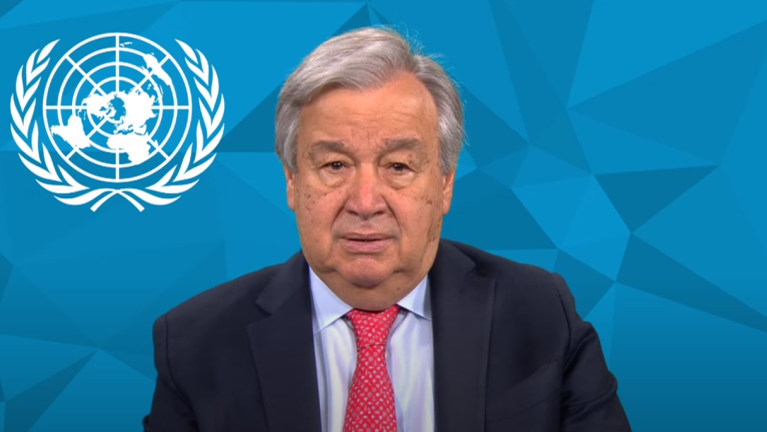The high price of press freedom
Belarusian journalist Elena Romanova was forced to leave her home country twice – she found refuge in Germany with the help of the Hannah Arendt Initiative.

It is Elena Romanova’s birthday this Wednesday at the end of February 2024. She looks tired, but her eyes light up when she speaks. This is her second birthday in exile in Germany. In March 2022, the journalist was forced to leave the place she called home for the second time in her life. It is not an experience she wishes to repeat. “I turned 49 today – so I don’t see myself starting all over again.”
Romanova is from Belarus. She worked for a regional television station in Svetlogorsk, some 200 kilometres south of Minsk, researching local developments and reporting on infrastructure problems such as water supply failures. That was sufficient to make her unpopular with the authorities. She was shunned and intimidated, and her editors were put under pressure to sack her, which was what eventually happened.
For a long time she felt relatively safe in Russia
Romanova moved to Russia in 2006: she was in her early 30s at the time. “The media there were still liberal back then. And Russian is my mother tongue.” She worked for Novaya Gazeta in Rostov-on-Don. The newspaper has always been considered critical because it advocates democracy and human rights: its employees have been repeatedly threatened; Novaya Gazeta journalist Anna Politkovskaya was even the victim of an assassination attempt in 2006. Yet Romanova felt relatively safe in Russia.
I reported what I saw.
This was until Russia annexed Crimea in 2014. Moscow denied that it was an armed occupation, but Romanova saw tanks rolling through Rostov-on-Don, which is located around 100 kilometres from the Ukrainian border. “I reported what I saw.” Once again, she found herself in a difficult situation. In addition to her job as a journalist for Novaya Gazeta, she worked as a “fixer” for German and other international media reporting on the annexation of Crimea, organising trips and facilitating access to sources in Russia and Ukraine.
Supported by the European Centre for Press and Media Freedom
Things went on this way for several years. But when Russia attacked Ukraine on 24 February 2022, the pressure became too much to bear. Romanova was also worried about her son, who was aged ten at the time. Her international colleagues advised her to leave the country, and a journalist friend put her in touch with the European Centre for Press and Media Freedom (ECPMF) in Leipzig. The ECPMF is a non-profit organisation that is actively engaged in supporting press freedom and providing protection for journalists under threat. On 8 March 2022, Romanova left Russia, the country that had become her second home.
Dieses YouTube-Video kann in einem neuen Tab abgespielt werden
YouTube öffnenThird party content
We use YouTube to embed content that may collect data about your activity. Please review the details and accept the service to see this content.
Open consent formThe ECPMF covered her travel and visa costs, also providing her with accommodation, a scholarship and a German course for the first six months. In addition, she was able to take part in media seminars, and she received support in establishing contacts in Germany. This funding seeks to enable participants to continue working as journalists from Germany. Romanova wrote for Novaya Gazeta Europe. After the newspaper ceased publication in Russia under pressure from Moscow, journalists in exile founded the European edition.
Maintaining free reporting in the countries concerned
The ECPMF is one of the partner organisations of the Hannah Arendt Initiative, a network which also includes the Deutsche Welle (DW) Academy, the European Fund for Journalism in Exile (JX Fund) and MiCT – Media in Cooperation and Transition. With funding from the Federal Foreign Office and the Federal Government Commissioner for Culture and the Media, they support endangered media professionals from Afghanistan, Belarus, Russia and Ukraine. The exile programmes are the last step in a chain of emergency assistance. The initiative’s first step is to try to support media professionals in their countries in order to maintain reporting there.

Most of the Ukrainian media professionals that the ECPMF supports are still in the country, says Andreas Lamm, the organisation’s Interim Managing Director. “We help them continue their work and run editorial offices, for example by providing power generators, replacing laptops destroyed in bomb attacks and financing life insurance.” Some 1,200 Ukrainian journalists have received assistance from the ECPMF.
Nothing is more dangerous to an authoritarian ruler than a well-informed citizen.
How does the ECPMF view the 75th anniversary of the Basic Law, which guarantees freedom of the press in Article 5? “The fact that media freedom is set down in the German constitution shows us how important independent reporting is in a democratic society,” says Andreas Lamm. “With the decline of democratic systems, free media are being sidelined. After all, they ensure that everyone in society has the opportunity to obtain information from a wide variety of sources. This is precisely what authoritarian rulers fear – nothing is more dangerous to them than an informed citizen.”



